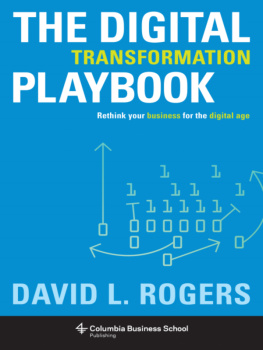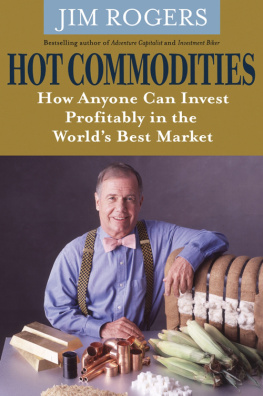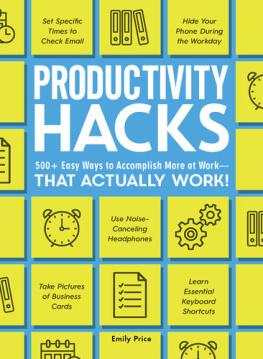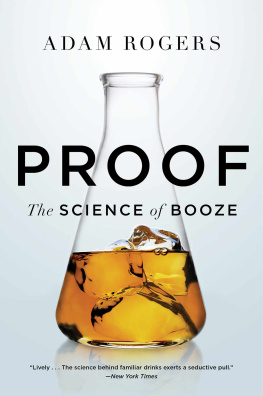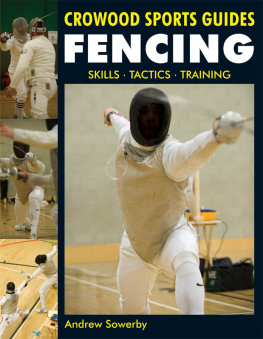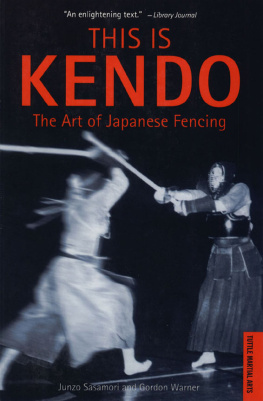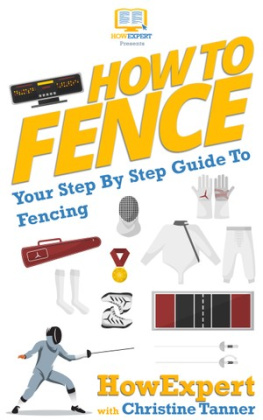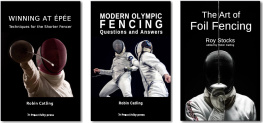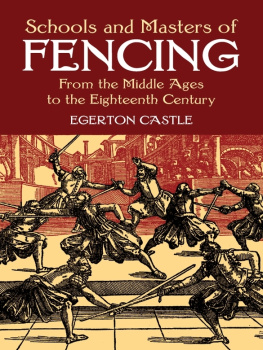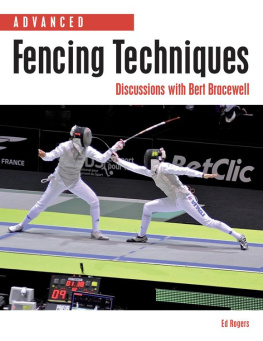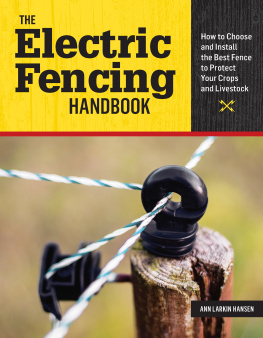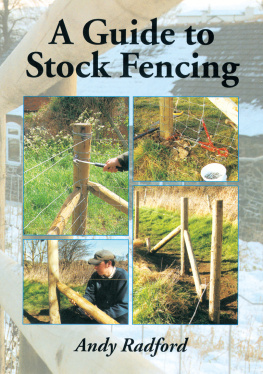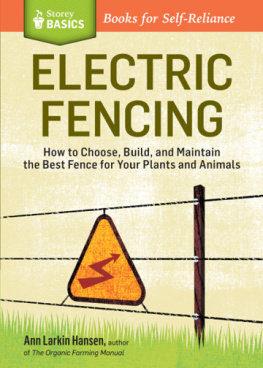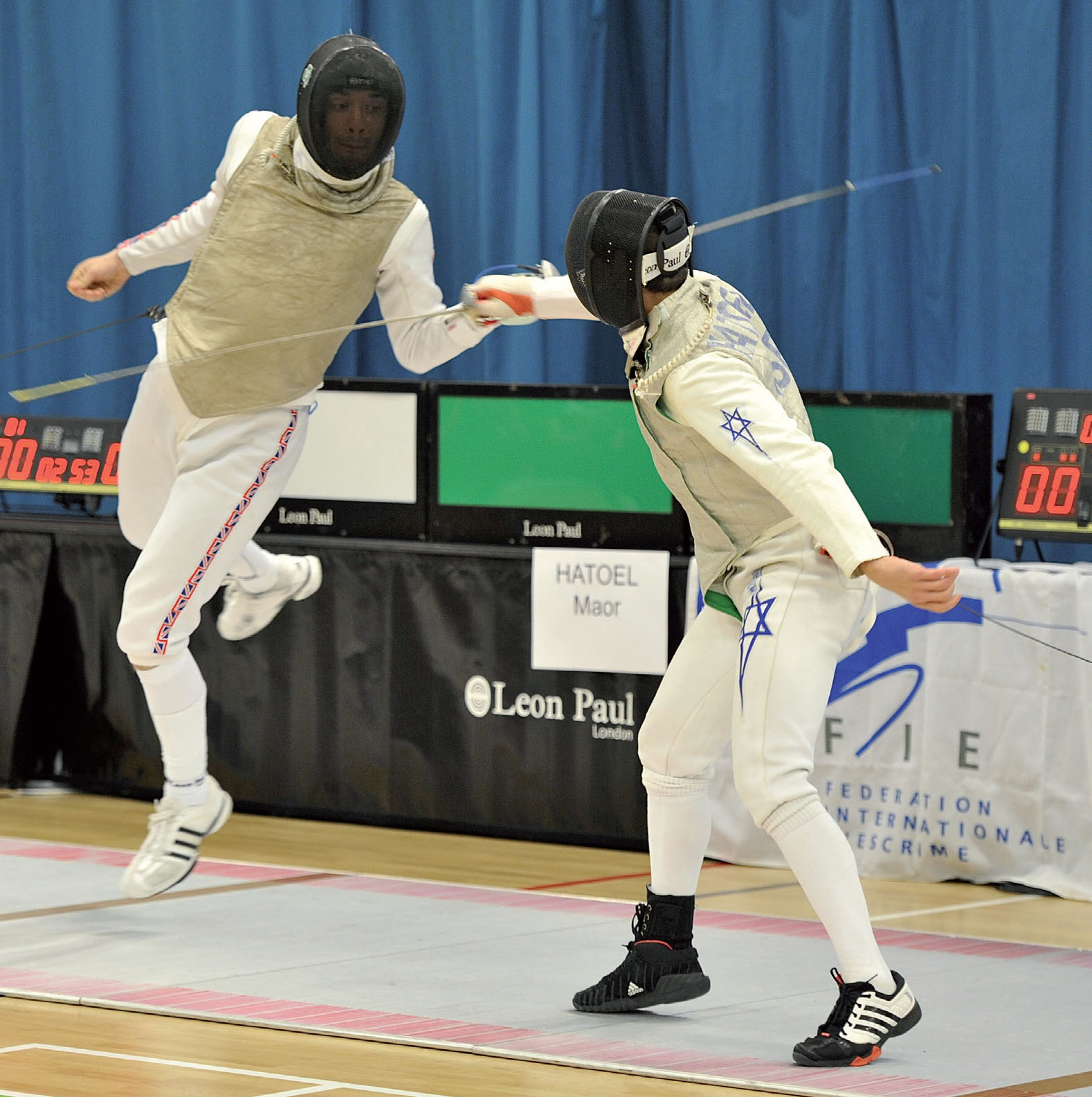
HIGH PERFORMANCE
FENCING
THE SEVENTH ESSENTIAL
ED ROGERS
FOREWORD BY GEORGINA USHER

THE CROWOOD PRESS
First published in 2015 by
The Crowood Press Ltd
Ramsbury, Marlborough
Wiltshire SN8 2HR
www.crowood.com
This e-book first published in 2015
Ed Rogers 2015
All rights reserved. No part of this publication may be reproduced or transmitted in any form or by any means, electronic or mechanical, including photocopy, recording, or any information storage and retrieval system, without permission in writing from the publishers.
British Library Cataloguing-in-Publication Data
A catalogue record for this book is available from the British Library.
ISBN 978 1 84797 986 5
Frontispiece: Leon Paul Cup, Mens Individual Foil Semi-final, London, 2013. Kristjan Archer of Great Britain, left, fights Maor Hatoel of Israel. Hatoel won 15/7 and went on to win gold, beating Italys Tobia Biondo 15/12 in the final. (Photo: Graham Morrison)
Disclaimers
Please note that the author and the publisher of this book do not accept any responsibility whatsoever for any error or omission, nor any loss, injury, damage, adverse outcome or liability suffered as a result of the use of the information contained in this book, or reliance upon it. Since some of the training exercises can be dangerous and could involve physical activities that are too strenuous for some individuals to engage in safely, it is essential that a doctor be consulted before training is undertaken.
Acknowledgements
Thanks to Dr Paolo Colombani at the Swiss Forum for Sports Nutrition for permission to reproduce its diagram Food Pyramid for Athletes; to Jane Griffin for reading and commenting on the Nutrition chapter; and Linlithgow Academy for permission to photograph on the premises. Graham Morrisons photographs appear as indicated. All other photographs and drawings are by the author.
Dedication
This book is dedicated to my wonderful wife Hilary.
CONTENTS
FOREWORD
To get to the top in world fencing you must work incredibly hard, find an inspiring coach and choose high-quality sparring partners who can push you to your limits. In addition, you will need a never-ending supply of self-belief and motivation to overcome short-term setbacks and continue working towards your longer-term goals. As you approach the higher levels in the sport, the time spent training, travelling and competing can be life-consuming. You will have to balance the cycle of training and competition activities, necessary to reach peak performance, as well as find space for the other things that make life meaningful.
Lessons learned early in life have an enduring quality that can last a lifetime. From the earliest days in your fencing career, close attention to detail becomes dominant, along with a persevering quality you will need to keep going, even when training or fencing feels difficult and other problems arise. Above all, you must hold on to your love of the sport, seek out constantly ways to improve and never falter in the belief that one day you will succeed.
Beyond the fundamentals of learning to fence there are other factors that, although they may seem incidental at the start, are vital in achieving long-term success. Worldclass fencers need to stay remarkably fit. Fencing-specific fitness is also required, often achieved through formal strength and conditioning programmes, using specialist advice. The importance of good nutritional standards should also be understood. What you eat will have a direct bearing on how well you perform, how hard you train and how fast you recover. The role of psychology in sport has now risen in prominence to the extent that many fencers now include mental training as part of their regular weekly routines. These and other topics are introduced within the scope of this book and should provide invaluable points of reference for all.
Georgina Usher CEO of British Fencing
As a competitor, Georgina Usher has been on the British team at eleven World Championships, has been an FIE World Cup medallist, Commonwealth Championships medallist and British Womens pe Champion ten times.
PREFACE
There are six essentials in a fencers mind.
The first is called spirit;
The second, rhythm;
The third, thought;
The fourth, technique;
The fifth, tactic,
And the last is strategy.
(Tau, 2005, p.12)
Six essentials have been described that are present in a fencers mind. You can fight with indomitable spirit, experience the changing rhythms of a bout and think your way quickly around difficult problems. Indeed it has been said that: Fencing is a fascinating game coordinating the mind and body in a harmonious form of movement. It has often been linked to a game of chess played at lightning speed. (de Beaumont, 1968, p.13) In this sense, there is not a move or action which cannot (potentially) be answered. This is an open skill where individual moves are a means to winning. (Anderson, 1973) Technique is also of paramount importance: Technical versatility is the base of richness of tactics and enables the fencer to surprise his (/her) opponent, not only by speed and choice of time, but also by variety of action. (Czajkowski, 2005, p.70)
Alaux (1975, p.172) says: Fencing as a sport is classified as a finished skill that requires both high speed and accuracy. Technique is defined as the mechanical or formal part of an art. It allows the expression of ones potential at its highest level. Potential is determined by the quality of the fencers senses, physical coordination, reflexes (both mental and physical), tactical ability, imagination, and so on. Undoubtedly, the foundation of a fencer begins with the development of his (/her) technique.
Many factors are necessary to ensure effective fencing, some of which have been listed by Beke and Polgr (1963, p.28) as follows: physical adaptability, adequate technique, tactics, sense of distance and timing, good reflexes, psychological adaptability, diligence, will power, ability to survey situations quickly and to take decisions, the will to fight, the ability to observe, speed, dexterity, stamina, and of course, strength. It has been observed that when applying tactics and strategy, two specific types of skill are in play: physical and mental. (Cross and Kirkham, 1996) Indeed To obtain the full satisfaction from fencing it is necessary to use ones brain as much as ones body. (de Beaumont, 1954, p.13) In the words of Alaux (1975, p.171): Any muscular effort is as much a mental act as conversation or writing.
Modern fencing is a highly competitive sport. Many complex physical and mental qualities are necessary in order to compete successfully; and the seventh essential in a high-performance fencers mind, is how to prepare him/herself physically and mentally to fence.
Preparation in this sense implies forethought; working to achieve a highly developed state of physical and mental readiness, in order to perform at ones best (in a sustained manner) at a particular point in time. To achieve this, fencers are likely to consider various questions and find some answers: What is fitness and how should I train? What is strength and conditioning? What and when should I eat/drink, in order to perform best? Am I prepared to spend all the time (and money) necessary, to reach the top? Will thinking differently about myself and my opponents help me to succeed? What tactical applications will be of most value? Any individuals list could potentially be quite lengthy and diverse.



